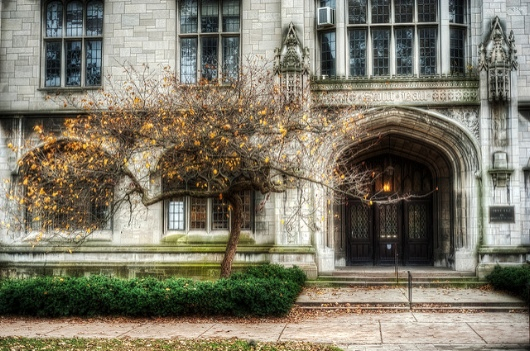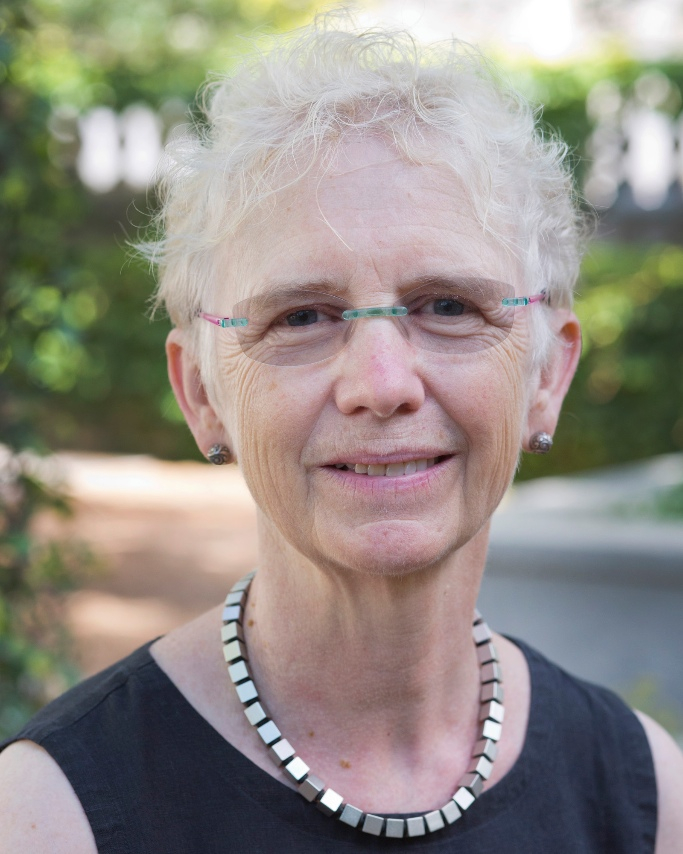Marty, Teacher
Editor’s Note: This month we are celebrating both the twentieth anniversary of the Martin Marty Center and the ninetieth birthday of Martin Marty
Editor’s Note: This month we are celebrating both the twentieth anniversary of the Martin Marty Center and the ninetieth birthday of Martin Marty. Marty would say that our focus ought to be on the Center, not on him, and for the most part it is. However, Marty has also said that part of the mission of Sightings is to help “interpret the interpreters” of religion in public life, and for the past half-century and more there has been no more notable interpreter of religion in American public life than Martin Marty. So we took the occasion to put together a series of reflections on Marty’s unique contributions to the public understanding of religion from authors who are themselves leading interpreters—whether in academia or in popular media. Here is the third, with others to follow.
 I was fortunate to be a doctoral student of Professor Marty’s in the late 1980s and early 1990s. As with my predecessor in faith, Catherine Albanese, my course of study was split between History of Religions and History of Christianity. Different worlds but graciously bridged by Marty.
I was fortunate to be a doctoral student of Professor Marty’s in the late 1980s and early 1990s. As with my predecessor in faith, Catherine Albanese, my course of study was split between History of Religions and History of Christianity. Different worlds but graciously bridged by Marty.
I took several courses with Professor Marty. Two of these were in what might be called the “great man” theory of American religious history. One paired the writings of James Madison and Alexis de Tocqueville and was taught jointly with David Tracy. The other was more unusual.
The other was one iteration of a series of seminars that Marty taught on modern American religious history. Each seminar focused on a single decade. My year it was the 1950s. The trick about this class was that each of us was asked to select a significant figure from the decade to be our special study. We were to come to class in character and in decade, so to speak. While we were in class we lived in the 1950s. I don’t remember every figure who was represented but some of them are as vivid today as they were now almost thirty years ago. The woman who portrayed W. H. Auden spoke only in verse! She was dazzling. There was a priest who took the role of John Courtney Murray. Encountering Murray in that class changed my understanding of his work. White nationalist Gerald L. K. Smith was so effectively performed that I can get a chill remembering his sinister presence in the room—and on campus. There was one undergraduate. He had chosen to be Paul Tillich. He was so earnest that the graduate students would confer behind his back about whether to reveal to him that Tillich was a serial harasser of women students. I was Felix Frankfurter. At the end of the quarter we were invited to Marty’s house where period food was served, period music played, and period periodicals displayed. We remained in character. It was a hoot. I learned from Justice Frankfurter that life does not always go according to plan.
I had come to the Divinity School after a ten-year career as a lawyer to see if I could learn a better way for law to think religion than I had seen in the writing of both law and religion scholars. It was a startling and challenging experience. Being a corporate lawyer had not prepared me for this. I found myself in the midst of an amazingly diverse, lively, and open conversation. Historians, anthropologists, theologians, philosophers. Marty was unfailingly supportive. As I learned at one American Academy of Religion lunch arranged by Marty with his former students we also all had stories about his personal kindness. Mine was that when he learned that our second son felt left out because there were no Catholic medals that represented his saint’s name, Marty designed one!
Since I graduated from the Divinity School, I have taught at a small private liberal arts college, at the Divinity School, and at two large public universities. The first two were in non-tenure-track positions. I was 57 when I was appointed to my first TT job and 60 when I was awarded tenure. In 2017, to my surprise, I was awarded the AAR’s Martin E. Marty Award for the Public Understanding of Religion. I am deeply honored to be associated in this way with Marty’s work.
I am not sure what the public understanding of religion meant to the award committee. For Marty I think his public ministry is deeply rooted in his ordination. For me, public has taken on new meaning since I started teaching in public universities. As my colleague Constance Furey has taught me, our primary public is our students. Our job is to help them learn to be precise and thoughtful when they think and talk about religion stuff. As teachers at a public university, though, we also have an obligation to justify the use of public funds to pay us. We must be punctilious in our research and teaching but we must be able to translate what we do—to the legislature and to the people. Through these primary tasks, we hope to contribute to a common task of governance in a democratic society. As for the governance of religion, in the U.S. that task is for the people, not for experts.
I am delighted to lift a glass in honor of Professor Marty, teacher extraordinaire.
Image: Swift Hall, home of the University of Chicago Divinity School | Photo Credit: Justin Kern/Flickr (cc)
 Author, Winnifred Fallers Sullivan (PhD’93), is Professor in the Department of Religious Studies and Affiliate Professor of Law at Indiana University Bloomington. She studies the intersection of religion and law in the modern period, particularly the phenomenology of modern religion as it is shaped in its encounter with law. She is the author of The Impossibility of Religious Freedom (Princeton, 2005), Prison Religion: Faith-based Reform and the Constitution (Princeton, 2009), and A Ministry of Presence: Chaplaincy, Spiritual Care and the Law (Chicago, 2014). She is also co-author of Ekklesia: Three Inquiries in Church and State (Chicago, 2018) and co-editor of Politics of Religious Freedom (Chicago, 2015). After five years as chair of the Department at Indiana, she is currently a visiting scholar at the American Bar Foundation. Author, Winnifred Fallers Sullivan (PhD’93), is Professor in the Department of Religious Studies and Affiliate Professor of Law at Indiana University Bloomington. She studies the intersection of religion and law in the modern period, particularly the phenomenology of modern religion as it is shaped in its encounter with law. She is the author of The Impossibility of Religious Freedom (Princeton, 2005), Prison Religion: Faith-based Reform and the Constitution (Princeton, 2009), and A Ministry of Presence: Chaplaincy, Spiritual Care and the Law (Chicago, 2014). She is also co-author of Ekklesia: Three Inquiries in Church and State (Chicago, 2018) and co-editor of Politics of Religious Freedom (Chicago, 2015). After five years as chair of the Department at Indiana, she is currently a visiting scholar at the American Bar Foundation. |
Sightings is edited by Brett Colasacco (AB’07, MDiv’10), a PhD candidate in Religion, Literature, and Visual Culture at the University of Chicago Divinity School. Sign up here to receive Sightings via email. You can also follow us on Facebook and Twitter.

